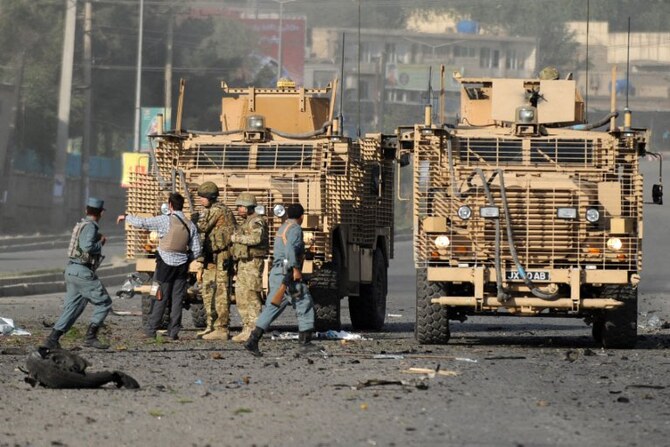LONDON: More than 2,000 resettlement applications by former Afghan Armed Forces commandos were rejected after UK Special Forces personnel vetoed their claims, preventing them from testifying to an inquiry into alleged war crimes, the BBC reported on Monday.
The UK Ministry of Defense revealed in a court case brought by a former Afghan soldier that officers denied applications from thousands of men who had fought the Taliban alongside the British in Afghanistan, having previously denied that a policy of doing so existed.
The MoD also refused to say, when asked by the BBC, if any applications for Triples Afghan soldiers — so-called because of the three-number identifications their units were assigned — had been supported by UK Special Forces senior figures.
Afghan Triples units were trained and funded by the UK. They were deemed at risk of reprisals following the fall of Afghanistan to the Taliban in 2021, and allowed to apply for resettlement in the UK.
However, controversy has surrounded the failure to support applications by UK Special Forces officers, as an inquiry is ongoing into allegations of war crimes committed by Special Forces soldiers in Afghanistan, where Triples commandos were present.
If resettled in the UK, the Triples could be compelled by the inquiry to give evidence. Many remain in hiding in Afghanistan.
One former Triples officer told the BBC: “Although (some asylum application) decisions have been overturned, it’s too late for some people.
“The delays have caused a lot of problems. People have been captured by the Taliban or lost their lives.”
The officer said Afghan commandos felt “betrayed” by their former “brothers” in the Special Forces, adding: “If Special Forces made these rejections they should say why. They should have to answer.”
The MoD denied that the Special Forces had the power to veto asylum applications, but former Defense Minister Andrew Murrison later admitted that they did after a BBC investigation.
Mike Martin MP, a former British Army officer who served in Afghanistan, told the BBC: “There is the appearance that UK Special Forces blocked the Afghan special forces applications because they were witnesses to the alleged UK war crimes currently being investigated in the Afghan inquiry.”
He added: “If the MoD is unable to offer any explanation, then the matter should be included in the inquiry.”
Former Conservative MP Johnny Mercer, who also served in Afghanistan and was an armed forces minister while in government, said he had heard “horrific” allegations made by Triples soldiers against UK Special Forces members.
It is “very clear to me that there is a pool of evidence that exists within the Afghan (special forces) community that are now in the UK that should contribute to this inquiry,” he added.
The ministry previously told the BBC: “There has been no evidence to suggest that any part of the MoD has sought to prevent former members of the Afghan specialist units from giving evidence to the inquiry.”














